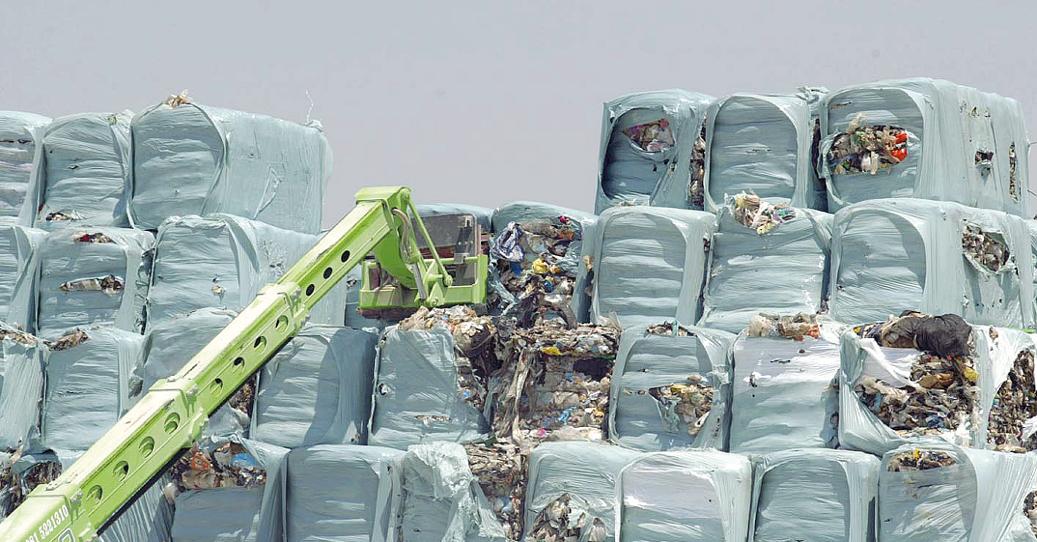
Italian television Rai 3 reported Monday on the incineration and disposal of urban waste in Italy.
Italy produces about 30 million tons of urban waste per year. In 2012 a recycling goal was set, at 60%, yet the 53% mark was only recently reached, in 2017.
Italy currently exports 433,000 tons of urban waste per year, towards Germany, Cyprus, Lesotho, Vietnam, Portugal, Spain, and Austria.
There are currently 44 incinerators in the country, almost all of them owned by the state or municipal corporations.
Still, only in the Masseria del Re garbage site, in Campania, there are 2 million tons of waste, produced between 2006 and 2008, and stored in large fields under the supervision of a government official. Throughout Campania, there are 5.6 million tons of urban waste tightly packed in cubic piles meant to be burned in incinerators that were never built. In total the incineration of all this waste will cost a few billion euros, throughout a period of 15 years.
The Brescia incinerator, the largest in Italy with a 800,000 tons yearly capacity, incinerates 720,000 tons per year, of which only 50,000 come from Brescia, and the rest coming mainly from other municipalities in Lombardy, but from outside the region, as well.
The more efficient public entities, particularly in the North, have built treatment plants in order to facilitate the primary selection and treatment of urban waste, with the purpose of reducing the amount that goes into landfills or incinerators, and waste sorting in northern Italy has greatly reduced the amount of waste to be incinerated, with the result being, that many plants import waste from the rest of Italy.
This, however, makes way for many possible abuses, that come mainly from several intermediaries who often change identification code on the waste in order to allow it to be sent directly to landfills, skipping, thus, the treatment process that reduces environmental damage.
According to European legislation that has been in force since 2013, unsorted waste (i.e. waste as is when collected from bins, as is the case in Tirana) can no longer be transferred directly to landfills, but must be first separated into metals, dry and wet waste, and stabilized (to hinder the fermentation and production of gas) to, finally, become RDF (refuse-derived fuel) that can be incinerated.
Incinerators, inevitably, produce two kinds of ash, the one that remains on the grid where combustion occurs and is treated and sent to landfills as special waste, and the much more dangerous one produced after fumes are filtered that are treated in special plants in Germany. Wet waste, on the other hand, is first stabilized then composted but the plants that do so are few.
According to Rai 3 and its depiction of the waste system, in southern Italy, waste is either sent to landfills even if it has not undergone necessary processing, because primary processing plants are over capacity, or is shipped to the North to be processed in the large plants owned by municipal corporations, that now have become under-utilized as a result of waste sorting and the increase in the recycling quota.
The same thing happened in Copenhagen, where a cutting-edge, brand new incinerator could not find enough “raw material” to function normally, again because of the success of waste sorting.
What this shows is that the most useful road to take is that of waste sorting, or the selection of waste in specialized plants, with the purpose of recycling of the majority of the waste, thus reducing both the amount that goes into landfills and what goes into incinerators.
This broadcast, thus, demonstrates that the Albanian government’s strategy to construct incinerators is a culturally regressive, and, consequently, that the capacity of said incinerators, already higher than the current need, hints at plans to import waste for incineration.
It also tells us that the incinerators release the most pollution through fumes, that, if not properly treated, will inevitably pollute the environment in the area surrounding the plant. Therefore, importing waste to incinerate in unsuitable plants means importing pollution and spread it.

